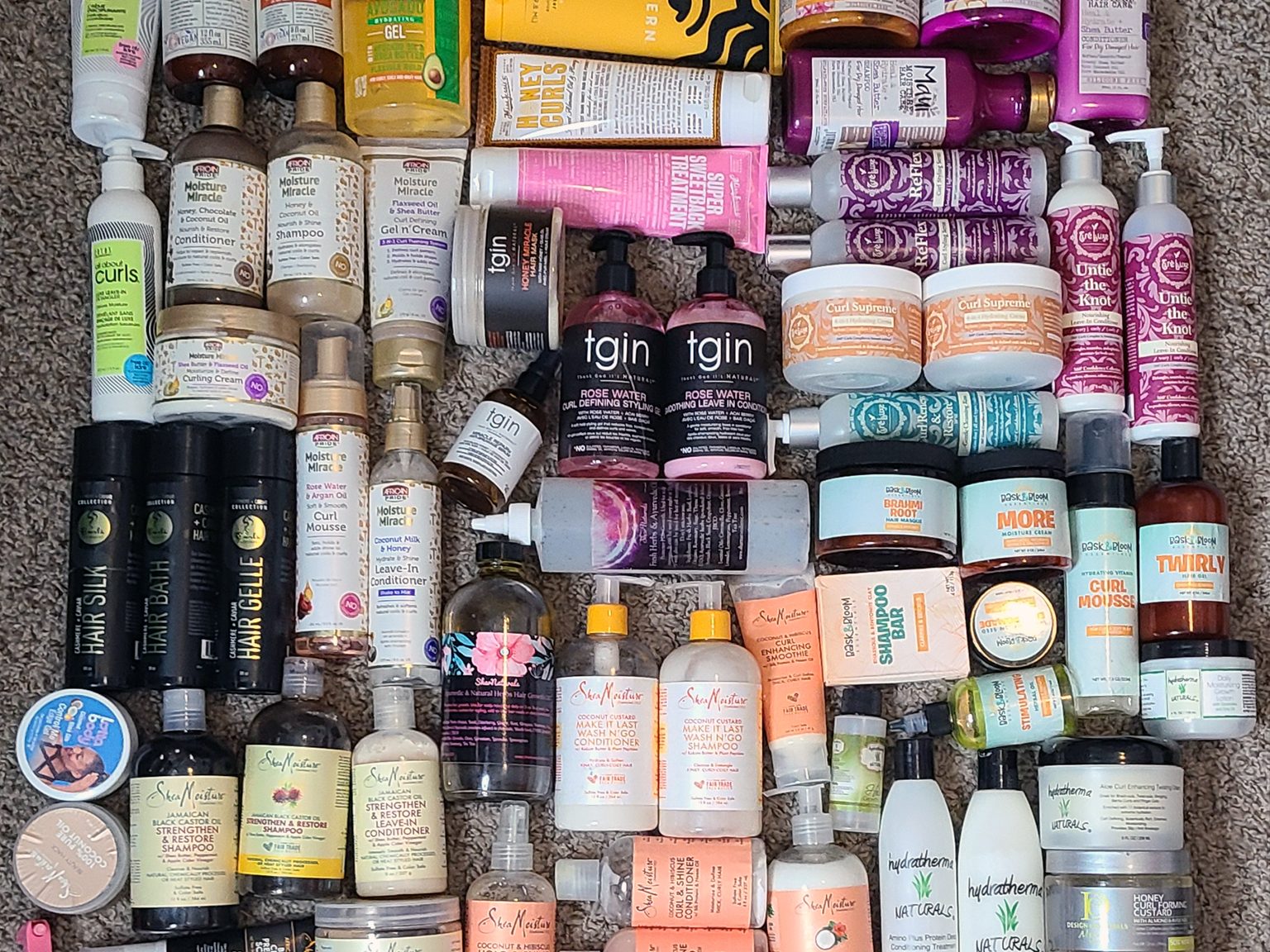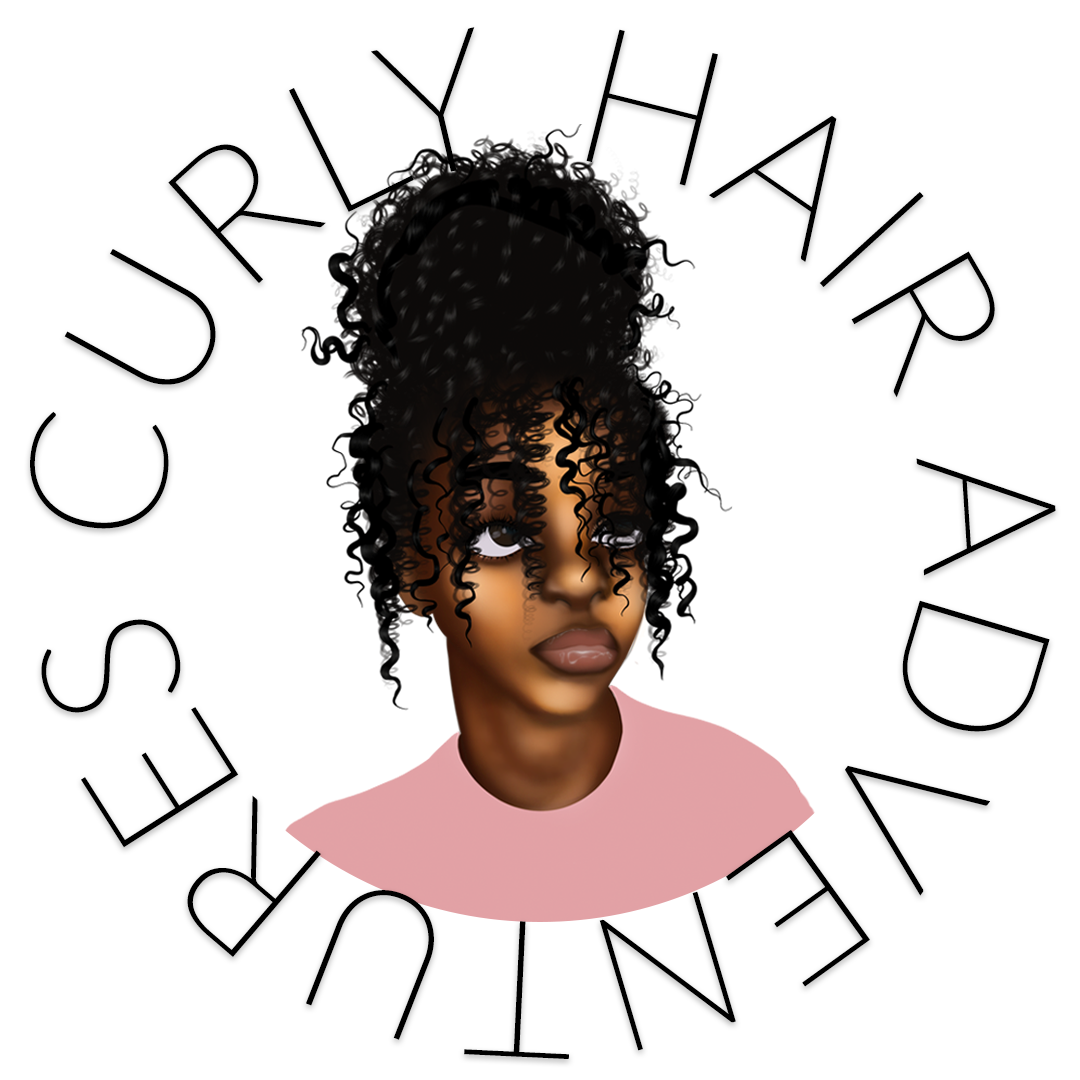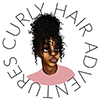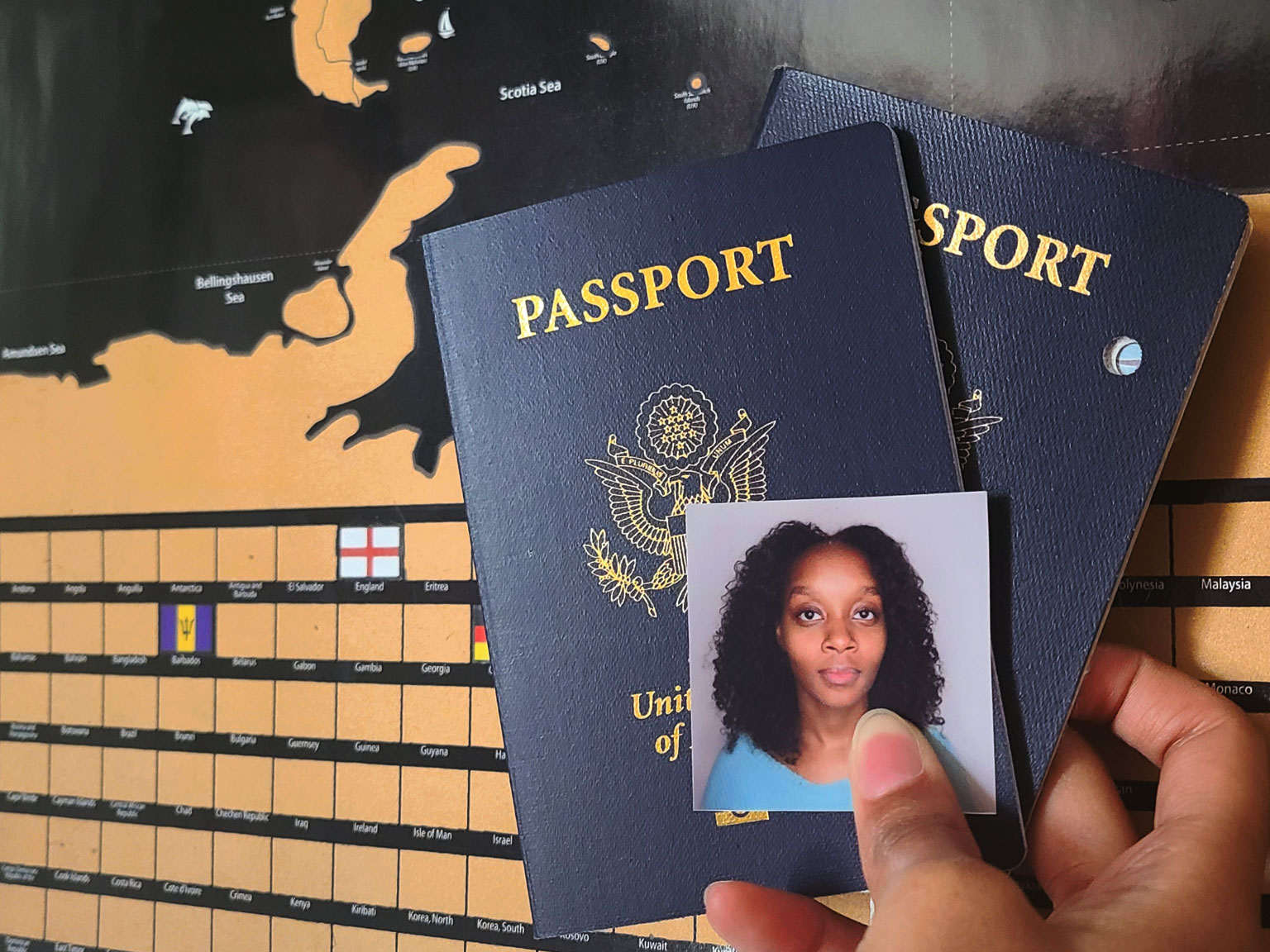
How to Find the Best Natural Hair Products
How do I find the best natural hair products and get my natural hair to grow? These seem to be the most frequently asked questions among new, and even seasoned, naturals. I’ve covered how to grow healthy natural hair, so this post will cover finding the best products. I encourage you to read that post before continuing with this one.
As mentioned in the how to grow healthy natural hair post:
There isn’t a miracle product that’ll grow your hair overnight. “Long” natural hair only comes when your hair is healthy. And healthy hair only comes when you’re patient and consistent with a healthy regimen/routine.
I needed to reiterate this because I don’t want anyone believing that one product will solve all their hair problems. Finding the best natural hair products for your hair will include some trial and error.
However, I hope this post helps you narrow your focus when finding products for your hair. And reduce how much you’re spending, because hair products aren’t cheap.
1. Use your hair characteristics as a guide
In the how to grow healthy natural hair post, I explain the importance of knowing your hairs characteristics. This can include your hair type, but it’s especially important to know your hairs density and porosity. I say this because while having an idea of your hair type is great, everyone’s hair is different. Just because your hair type is similar to someone else’s doesn’t mean the products they use will work for you.
Once you have this information, apply it when finding the right natural hair products for you.
Porosity
Depending on the porosity of your hair, you’ll understand what products to use to keep your hair moisturized.
For example, my hair is high porosity and typically needs products that:
- Are heavier/thicker in consistency since my strands absorb moisture quickly, but dries out just as quickly. Products with heavier/thicker consistency ensures my hair is moisturized until my next wash day
- Include protein in the ingredient list to strengthen my strands since it’s prone to breakage and tangles
- Add shine as high porosity hair tends to look dull/dry
Density
Depending on your hairs density, you can pick products that will properly coat all of your strands.
For example, my hair is high density and typically needs products that are heavier/thicker in consistency to coat my strands. Lighter products don’t properly coat or moisturize my strands since my hair is so thick. I also use oils to seal in moisture.
2. Pay attention to ingredients
Take inventory of the products you currently own, does your hair respond positively to any of these products? Take a look at the ingredients listed and use that as a guide to find similar products. Typically, the first five ingredients listed on a product have the highest concentrations. Almost all hair products start with water or aloe vera (if they don’t I’d be weary). Once you’ve learned what ingredients your hair does/doesn’t like, you’ll reduce the amount of money spent on products that don’t work.
For example, I’ve learned that my hair loves aloe vera, honey, hydrolyzed rice protein, avocado, mango, and amino acids. So, I look for products with all, or some, of these specific ingredients listed. And my hair has responded positively to almost all the products I’ve found with some/all of those ingredients.
If you’re allergic to certain ingredients, it’s also important to scan all ingredients listed on a product.
3. Don’t fall for the marketing schemes
There are tons of products out there promising things like: hair growth, hair repair, thickening, moisturization, strengthening, and more. These claims are just marketing/promotional tactics — companies know what language to use to entice you to purchase their products.
For example, hair growth pills/serums/oils, aren’t THE miracle products they’re made out to be. But, they may have ingredients that promote healthy hair and scalp. Don’t buy a product just because of what the pretty packaging promises, look at the ingredients listed (tip #2).
4. Address your hairs current health and needs
By determining your hair’s current health, you can buy products your hair actually needs. For example:
- Suffering from breakage and/or weak strands? Then use a protein treatment as often as needed
- Is your hair dry or lacking elasticity? Try incorporating more deep conditioning treatments in your wash day routine
- Does your scalp get itchy, or product builds up easily? Consider using clarifying shampoo’s
5. Understand the proper usage of products
There are many misconceptions out their about natural hair products. For example, oils and butters AREN’T moisturizers — yes, I said it! It’s important to understand what each product does so you get better results, set realistic expectations and save money. For example:
- Water and water-based products are meant to moisturize
- Oils/butters lock in moisture, prevent moisture loss, and provides shine
- Some styling products are meant to do just that — style, and not moisturize
- Some deep conditioners provide a hint of protein for strength (and vise-versa)
6. Get the important products
I make the argument that every natural needs a: shampoo, deep conditioner, protein treatment, leave in conditioner, and sealant (oil/butter). In my opinion, things like rinse out conditioners and styling products are optional, but to each it’s own. You’ll learn overtime whether or not these products are absolutely crucial in your regimen.





